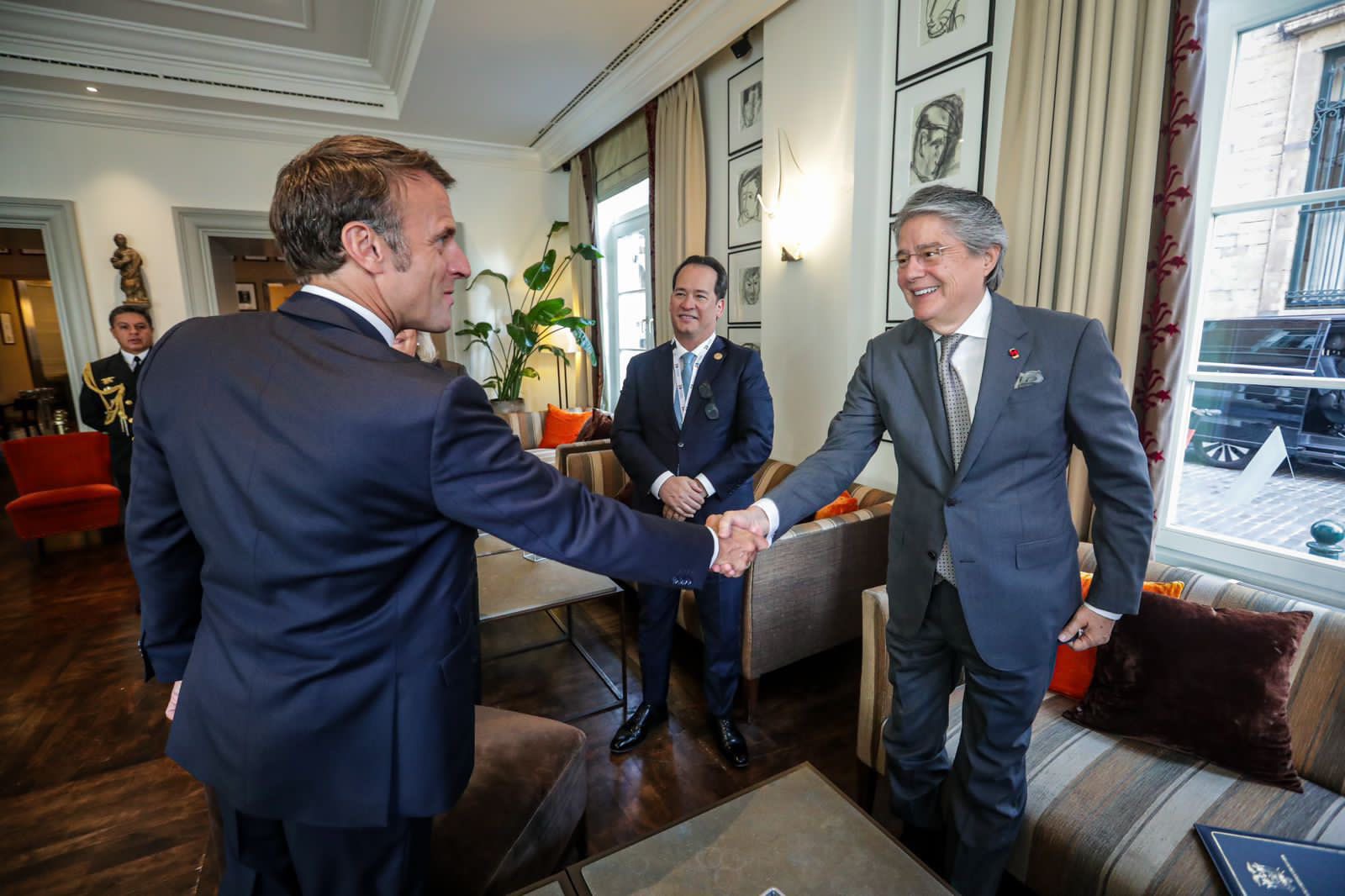
Ecuadorian President Lasso Guillermo shakes hands with President Emmanuel Macron at CELAC meeting.
Henry Cucalon, on Twitter
Travelling and working in the EU for Ecuadorians is about to get easier, as Ecuador moved closer to a visa-free travel agreement with Brussels. The country’s president, Guillermo Lasso, signed a new memorandum of understanding with the EU that could open the way to exempting Ecuadorians from requiring visas to live and work in the EU.
European and Latin American leaders met in Brussels this week for a meeting of CELAC (Community of Latin American and Caribbean States), a regional bloc that represents South American and Caribbean nations. The EU is courting Latin America for access to its natural resources and to prevent the spread of Russian and Chinese regional influence, as Latin American leaders quibble over Western demand for solidarity with Ukraine.
The Ecuadorian delegation to the CELAC summit, including Minister of Foreign Affairs of Ecuador Gustavo Manrique, had previously announced its intention to push for visa liberalisation to the EU as its top priority. According to the Ecuadorians, 20 out of 27 EU nations have already agreed in principle that Ecuador should receive visa exemption status, with the remainder expressing support in other ways.
Currently, Ecuadorians moving to Europe are required to supply proof of accommodation and financial means, as well as multiple documents before they are allowed access to the Schengen Zone.
🔊 #ATENCIÓN | Durante su intervención en la III Cumbre de Jefes de Estado y de Gobierno de la CELAC y la Unión Europea, el presidente Guillermo Lasso insistió en la importancia de la exoneración de la visa Schengen para Ecuador.
— NotiMundo (@notimundoec) July 18, 2023
Los detalles ⤵️ pic.twitter.com/Z8rElDNlgw
A common language and a poor domestic economy have led an estimated 400,000 Ecuadorians to take up residence in Spain. Partido Popular leader Alberto Núñez Feijo, expected by most to be the next Spanish prime minister, has been a vocal advocate for better visa access for Ecuadorians as well as Peru and Colombia.
The move towards visa liberalisation with Ecuador is part of a wider EU trend of offering easier access to Europe to the Global South in exchange for enhanced cooperation and to shore up domestic labour shortages.
The EU’s top diplomat Josep Borell travelled to the Dominican Republic in March to broach the possibility of abolishing visa requirements as both Germany and Spain increasingly approach Latin America for new workers.
Similar visa arrangements increasingly form the backbone of European foreign policy, such as the EU-Tunisian migration deal signed last week. In it, Italy offered Tunisia student visas in exchange for helping to curb illegal immigration into Europe.
A leaked EU briefing from April described additional plans to give sweeteners for visa access to Brazil, Chile, Nigeria, and Kazakhstan to safeguard their cooperation against Russia in the Ukraine war.
